
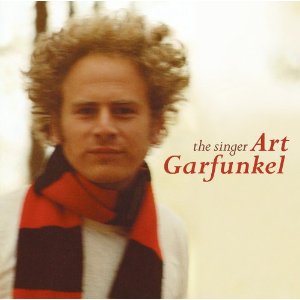
A Conversation With Art Garfunkel
Mike Ragogna: Art, I'll just come out and say it. Your voice is amazing, you're awesome and you're one of my heroes. So.. how are you?
Art Garfunkel: I'm fine, thanks for putting that pedestal under me.
MR: Are you kidding me? Simon & Garfunkel was my first love, we'll just say it like that, and I've never looked back.
AG: We did good work, didn't we? We have been a good musical act all these years.
MR: Yeah, really beautiful material. I couldn't fathom being Garfunkel or Simon because both of you have contributed so much to the culture.
AG: I'm in the eye of the hurricane, you might say. I can't see what it is I did because I'm in the middle of it all. I just keep making value. My wife is a Buddhist and that's what she says. "Never mind the culture of the milieu you live in. If it confuses you or depresses you, you just be busy making value."
MR: Beautifully said.
AG: That's my wife Kathryn.
MR: Yay, Katherine! Okay, let's look at your new project, the double disc album, The Singer. First off, I want to ask a technical question. How do you stay in shape vocally these days?
AG: Well, I have my iPod. The iPod is full of favorite things I like to sing to, as if it's a warm-up tape. It has scales, it has Indian chants, things that keep me staying in shape. It has favorite people I love to sing to, and they bring out the voice. The Everly Brothers... I shadow Don's voice, the lower one, and when I'm warmed up, I copy Phil's voice in dead unison so I can get his wonderful tones and the shine of his pronunciation. Then I go on to James Taylor who sings with so much heart and tenderness. Gee, I had a dream last night, it was ol' James Taylor in my dream, how interesting. I love to sing to Chet Baker. I consider him a great crooner even beyond Sinatra. He's a perfect match with my voice. I go through these various tunes on my iPod that work for me.
MR: You rehearse to James Taylor songs like "Copperline," right?
AG: Yeah. I'm a James Taylor nut. His tapes are in my dressing room before I go out on stage because the tenderness of his singing is really a lovely thing. There's so much heart, so he's a big help.
MR: Speaking of James Taylor being on The Singer -- by the way, finally, there's a celebration of your music that spans all of your works -- you sing a couple of songs with him, "Crying In The Rain" and "What A Wonderful World."
AG: You've done your homework, you're very quick with these.
MR: I totally know your material, sir!
AG: Yeah. James and I have worked on each other's albums. He invites me into his albums sometimes and I harmonize with him. We both have an ear for how good the other one is. This album of mine is my proud life's body of work. If I never did anything else, I would say, "There it is. That's what I did on Earth with music while I was here." It's thirty-four songs, with and without Paul Simon, and I can't tell you how enormously proud I am of it. Anybody who plays it loud or puts on ear phones will see that it adds up to something as tune after tune continues, and I hope that I lived up to what my mantra was: "The singer can sing."
MR: "All I Know" is that you can really sing.
AG: You're good, Michael.
MR: [laughs] Art, I want to ask you about some of the material on here. Within the booklet, you write reflections, poetry, and all sorts of wonderful descriptions and commentaries to the songs.
AG: I'm like a creative guy!
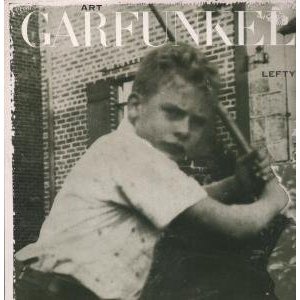
MR: [laughs] Now, I would love to get your reflections on some of these songs, maybe on a few of your favorites? I want to leave the choices to you, this is your collection.
AG: Okay. One of my favorites is "The Promise." It came out in the late eighties on an album of mine called Lefty, which hardly sold anything and it's kind of, therefore, a hidden song. "The Promise" is what I call a really lovely mature love song. It's written by Nick Holmes, and it's one of the only times I sang in the bass/baritone range. I left my normal tenor sound in order to express my fervent, heartfelt lover's sentiment. He says to her, "I'd like to give you nothing to fear." Talking about music is like dancing about architecture. It's hard to say it, except to hear it is to hear a lover's honesty. I'm very proud of that one.
MR: Nice.
AG: I produced it with Steve Gadd and Geoff Emerick, the great engineer for all of The Beatles' records. Let me find another one that I think is special. "Bright Eyes" is special. "Bright Eyes" was a number one record all over the world except the United States, people don't know it, and I want them to know it. "Bright Eyes" is a winner of a tune and it has a nice vocal performance. "Water Of March" is by Antonio Carlos Jobim, one of the great songwriters of the twentieth century. In "Waters Of March," Jobim is listing ninety three nouns: A stick, a stone, the end of the road... It just embraces the all and the everything of life, and it adds up to a kind of a giant embrace, so that's one of my favorites.
MR: I want to throw a personal Art Garfunkel story out there. "All I Know," your first solo hit? When I first heard that, I was in the catholic military academy, Xavier High School, on 16th Street.
AG: Oh, that helps me understand you.
MR: [laughs] There you go!
AG: I thought you were crisp, Michael. I could feel that energy and that accuracy.
MR: Thanks for saying that, Art. I guess my point is that the first time I heard that, it played on the radio during some drill or something, and to me, like when I heard "Bridge Over Troubled Water" for the first time, I got the same kind of chills from your record.
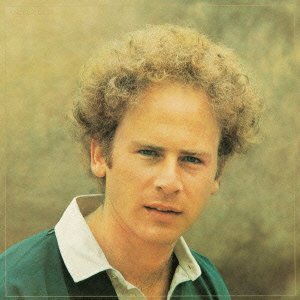
AG: "All I Know" comes on my first solo album, called Angel Clare. I had split from Paul and I was trying to show in that album my contribution to Simon & Garfunkel is considerable, and here I am doing the same kind of Simon & Garfunkel record making work on my own solo album, and maybe that's why you feel the similarity. I must say, as years went by, I looked back on "All I Know" and I look at it as overly grandiose as a production, and that's why I did it again on this Singer release with just Jimmy Webb on piano and me on vocal. So I stripped out all of the strings and heavy production. Now I hope to reveal that the song is very strong and the singer is a good singer, and Jimmy Webb moves me on piano. This is an emptier version, a shorter version, and I quite like it better. I've reconsidered all of that grandiosity of the past.
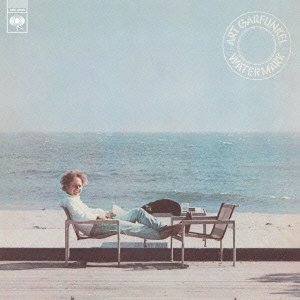
MR: What's interesting also is that your Watermark album, when you did that project of Jimmy Webb songs, it was less grandiose. I guess you kind of already knew at that point what you wanted from your Jimmy Webb songs.
AG: Yeah. I go to him all the time just because I hear him, I hear his changes. He's just a very musical cat. My tennis partner, Jimmy Webb.
MR: Ah, your tennis partner, very cool. Wait, tennis partner? Why that reminds me of Carnal Knowledge.
AG: Oh, right, because of that scene at the end of Carnal Knowledge. Jack and I are watching our two dates playing. "Pretty good, Cindy, and I'm not even giving you the points!" There's a tennis scene in that.
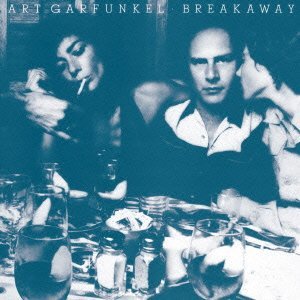
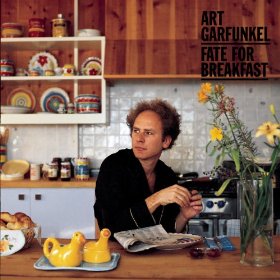
MR: Very cool. So album after album, you've worked with various producers in addition to folks like Geoff Emerick or Richard Perry who worked with you on your Breakaway album. For instance, you also worked with Louie Shelton on one of your albums.
AG: Fate For Breakfast with Louie Shelton. He was our guitar player on some of the earlier work and I knew he was really great; a very liquid, smooth guitar player. I hoped he would be the spine on guitar of a whole bunch of new things, so I asked him to produce the album.
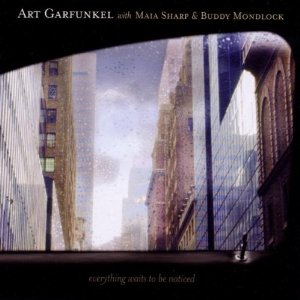
MR: Nice. And also, you've recorded more duets and trios, like when you got together with Maia Sharp and Buddy Mondlock, another one of my favorite songwriters, who wrote "The Kid."
AG: So you know him, great.
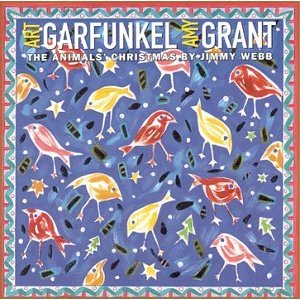
MR: Yes, and there's your duet with Amy Grant.
AG: On The Animals' Christmas. Dig this, Michael. Jimmy Webb wrote a cantata for children's choir--full orchestra, and solo singers--that tells the story of the birth of Christ at the manger from the animals' point of view. He calls it The Animals' Christmas. I play the narrator, so I'm in and out all the time through the album, but it's a full orchestration of Jimmy Webb writing. Amy plays Mary and she's in the album.
MR: Nice. Before we leave Jimmy Webb, there are songs on this album, such as "Scissors' Cut" and others. He seems to be a bit of a soulmate with you, at least as far as songwriting over the years, hasn't he?
AG: Yes, he has. If you were to ask me, "How does that work?" I would say "It's all musical affinity," and it's very hard to explain why you're on somebody else's wavelength. I just am. I hear Jimmy Webb as one of the greats of all time. He's brilliant. I want him to be fully appreciated.
MR: I agree with you totally. Talking about affinity, you have an affinity, not just with great romantic music, but also, your catalog spans from folk to Broadway. You recorded "Some Enchanted Evening," but you also recorded "Barbara Allen." I know where some of your musical history comes from, having read so much about you, but I don't know what your musical tastes are these days.
AG: Okay. I grew up in the forties, that's how old I am, so that's the age of South Pacific and West Side Story and My Fair Lady. Theatrical tunes, for me, come from that basis. My sense of being a crooner, that thing that Sinatra is, comes from the radio in my childhood. In my teenage years in junior high school, I formed a friendship with Paul Simon, and Alan Freed brought rock 'n' roll to New York radio and the entire culture changed, and then we got down and dirty. Chuck Berry, Little Richard, Jerry Lee Lewis and this was the hippest thing going on in square Eisenhower America. I was captured, and Paul and I started songwriting together and rehearsing and emulating those people who were on the radio, and that's where my hits come from, and that's where my love of The Beach Boys -- who were a little later -- and the Everly Brothers come in. So my tastes come from R&B in the early days. There never would've been "Sail on, Silver Girl, sail on by." I wouldn't have dictioned it that way if it weren't for my exposure to R&B in the fifties. There are a lot of different influences. Folk music taught me goosebumps. Folk music always had themes that had to do with righteous indignation -- the unfairness of how coalminers are treated and how unions are to be respected, and "Up with the little man!" That kind of expression, in folk music, talked to me and Paul, and he started writing that way. But Paul put a twist on it. There was a real prettiness in his folk melodies. A lot of folk songs were more raw, but Paul made it pretty because he could play guitar so well, and we started having hits. That's where "The Sound of Silence" comes from.
MR: What a great history lesson. Art, I wanted to ask you my traditional question, which is what advice do you have for new artists?
AG: Be careful of advice. Be very personal and private about your sense of what's good about you. If it's not a sense of what's great about you, give it up. You've got to think you're great and you have to close the doors and stick with that and practice. This does not involve other people. It's a one-man or one-woman show, this pursuit. Use your own ears; that's the only audience you need when you're learning -- your own ears. Shape your sound until your own ears say, "That's good... that's very good... that's great!" You pursue that. I don't believe in teachers or classes or students. It reduces the ego.
MR: Thanks. Your son is musical too, isn't he?
AG: Yes. My son is extremely musical. He sings better than I do, and that's pretty good singing. My son James... he's a very fascinating twenty-one year-old. When you have a boy who's growing up as Art Garfunkel's son, you have a challenge to sort of get away from it. He keeps his musical gift in his back pocket with the button closed. He needs to carve out his own turf as a young man, so his extraordinary gift is just a private affair with him so far.
MR: There must've been a little guidance, maybe as far as you going, "Hey son. You like singing? Here, let's support you in this way, that way, the other way," you know?
AG: I have moved in that direction and I can see he's got something else in mind, even if the something else is the unknown, even if it's questions. But I can see that there's an elephant in the room, and I'm the elephant and the room is the Western World.
MR: By the way, what about "Lena?" She has a little problem, doesn't she?
AG: Yes, she does. Poor Lena.
MR: [laughs] Art, let's leave it there, I know you're on a tight schedule. But this has been so special to finally get to interview you! I really appreciate your time, thank you so much for talking with us and please let's do it again. We should have another conversation that talks about your worldviews, all that.
AG: Michael, I don't want cheap flattery here, but I must say that catholic military school made a really sharp guy out of you. You're terrific, and you're quick as a Deuce. You've done a lot of things that I really appreciate. You know my time schedule, you know my album, you did your homework. Thanks a million, Michael, it was a real pleasure.
MR: Wow, thank you, very much, Art. I know you've got to run, but I want to slip in a personal thank you because you have been such an influence on my life as Simon & Garfunkel and as Art Garfunkel. Your album Angel Clare was the perfect soundtrack to my growing up in Manhattan, and it stayed with me through my adolescence. I really appreciate it.
AG: I love to hear that stuff. Thank you, Michael. Bye-bye.
MR: Bye, Art.
Tracks:
Disc: 1
1. Bridge Over Troubled Water
2. All I Know
3. Perfect Moment
4. For Emily, Whenever I May Find Her
5. Crying In the Rain
6. I Only Have Eyes For You
7. 99 Miles From L.A.
8. (What A) Wonderful World
9. Bright Eyes
10. Two Sleepy People
11. Skywriter
12. Scarborough Fair/Canticle
13. Some Enchanted Evening
14. The Promise
15. The Thread
16. Lena
17. Barbara
Disc 2
1. Kathy's Song (Live Version)
2. Long Way Home
3. Scissor Cut
4. The Sound Of Silence
5. Break Away
6. So Long, Frank Lloyd Wright
7. Waters Of March
8. The Decree
9. I Wonder Why
10. Disney Girls
11. My Little Town
12. O Come All Ye Faithful
13. A Heart In New York
14. I've Grown Accustomed To Her Face
15. April Come She
16. When A Man Loves A Woman
17. In Cars
Transcribed by Galen Hawthorne
